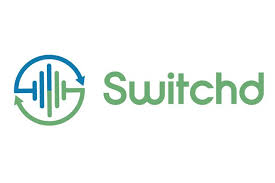LONDON, 31 July 2019 – After a long scouting, selection, and due diligence process, the 2019 class of Japan Energy Challenge has been selected.
Japan Energy Challenge provides a series of energy innovation programmes aimed at helping international energy sector companies demonstrate their products with their first major customer in Japan – the world’s most dynamic and exciting energy market. While our activities are ongoing, our central event is our annual Venture Competition and, launched this year, Startup Pitch Competition.
We selected this year’s cohort by identifying the most promising trends in the cleantech sector and matching them according to their strategic fit with the sponsors’ goals and Japanese market projections. More than 600 innovative companies active within these trends were evaluated during the selection process, until a pool of promising companies were identified.
We targeted primarily European companies and shortlisted them based on market traction, technology demonstration and project runway times. Depending on their size, traction, technology readiness level, and timeframe for a perspective collaboration, the companies were considered for either the Venture Competition – where a collaboration can be expected within one year of meeting the sponsor – or the Startup Pitch Competition – where we the goal is to showcase early stage innovation that may have future application in Japan.
Once the invitation to take part in the program was accepted, the companies underwent a due diligence process led by the JEC team over a period of several months. Opportunities were identified and, and having explored each company remotely the sponsors and companies will now have a chance to meet face-to-face to discuss future projects. The companies that make the most progress in these discussions or present the most compelling pitch for investigating further will win a prize – a fully-sponsored trip to Japan to meet again and sign agreements.
Selected companies for the 2019 Venture Competition:
 Connected Energy provide energy storage units comprised of second-life EV batteries for use in commercial, industrial, and utility applications. Read our interview with Connected Energy here.
Connected Energy provide energy storage units comprised of second-life EV batteries for use in commercial, industrial, and utility applications. Read our interview with Connected Energy here.
 Edge Electrons have designed a range of energy efficiency and monitoring technology solutions for grids, businesses and homes.
Edge Electrons have designed a range of energy efficiency and monitoring technology solutions for grids, businesses and homes.
 eMotorWerks (now part of Enel X’s e-mobility solutions group) offer a complete line of smart electric vehicle charging stations and custom solutions and allow their customers to control their EV fleet’s charging schedules with the advanced IoT platform, JuiceNet Enterprise. Read our interview with eMotorWerks here.
eMotorWerks (now part of Enel X’s e-mobility solutions group) offer a complete line of smart electric vehicle charging stations and custom solutions and allow their customers to control their EV fleet’s charging schedules with the advanced IoT platform, JuiceNet Enterprise. Read our interview with eMotorWerks here.
 Energisme is a software platform that provides its customers with predictive modeling tools and an ecosystem of partners to anticipate and optimize their energy consumption.
Energisme is a software platform that provides its customers with predictive modeling tools and an ecosystem of partners to anticipate and optimize their energy consumption.
 EO Charging designs and manufactures EV charging stations and smart software for homes, fleets and destinations.
EO Charging designs and manufactures EV charging stations and smart software for homes, fleets and destinations.
EVBOX build easy-to-use and durable charging solutions (hardware and software) for electric cars. It has provided 50,000+ charge points in over 30 countries, making it Europe’s largest charging solution provider.
![]() Ezzing Solar have developed an “all-in-one” software solution that simplifies solar PV sales and allows companies to develop and be profitable in providing distributed generation. Read our interview with Ezzing Solar here.
Ezzing Solar have developed an “all-in-one” software solution that simplifies solar PV sales and allows companies to develop and be profitable in providing distributed generation. Read our interview with Ezzing Solar here.
 Green Energy Options (GEO) focuses on the energy element of the smart home. Their aim is to use their smart energy devices to help customers save money on their energy bills. Read our interview with GEO here.
Green Energy Options (GEO) focuses on the energy element of the smart home. Their aim is to use their smart energy devices to help customers save money on their energy bills. Read our interview with GEO here.
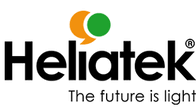 Heliatek make Organic Solar Films, a flexible and light solar panel for the building industry that can be installed on many more surfaces than traditional PV modules. Read our interview with Heliatek here.
Heliatek make Organic Solar Films, a flexible and light solar panel for the building industry that can be installed on many more surfaces than traditional PV modules. Read our interview with Heliatek here.
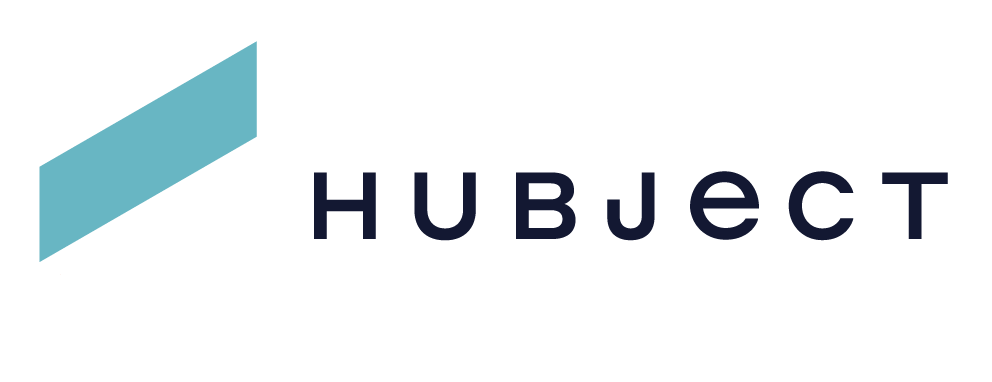 Hubject provide a digital B2B marketplace for connecting different market players in order to create a digital and cross-border charging network for electric vehicles – the intercharge network. Over 140,000 charge points on three continents are connected to their platform. Read our interview with Hubject here.
Hubject provide a digital B2B marketplace for connecting different market players in order to create a digital and cross-border charging network for electric vehicles – the intercharge network. Over 140,000 charge points on three continents are connected to their platform. Read our interview with Hubject here.
 Kaluza provides a platform to securely connect, control, and optimise a wide range of IoT enabled flexible assets. Read our interview with Kaluza here.
Kaluza provides a platform to securely connect, control, and optimise a wide range of IoT enabled flexible assets. Read our interview with Kaluza here.
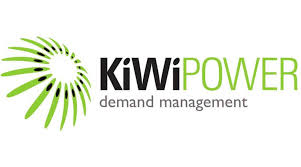 KiWi Power is the UK’s leading demand response aggregator, working with system operators like National Grid to reduce electricity consumption at peak times and create a cleaner, more cost-effective grid.
KiWi Power is the UK’s leading demand response aggregator, working with system operators like National Grid to reduce electricity consumption at peak times and create a cleaner, more cost-effective grid.
 Lumenaza‘s “utility-in-a-box” software connects producers and consumers of locally produced renewable power so they can build up a regional, communal and transparent supply with green electricity. Read our interview with Lumenaza here.
Lumenaza‘s “utility-in-a-box” software connects producers and consumers of locally produced renewable power so they can build up a regional, communal and transparent supply with green electricity. Read our interview with Lumenaza here.
 Next Kraftwerke‘s virtual power plant software-as-a-service solution NEMOCS allows clients to aggregate, monitor and manage thousands of decentralized energy resources in a very performant, reliable and beneficial manner. Read our interview with Next Kraftwerke here.
Next Kraftwerke‘s virtual power plant software-as-a-service solution NEMOCS allows clients to aggregate, monitor and manage thousands of decentralized energy resources in a very performant, reliable and beneficial manner. Read our interview with Next Kraftwerke here.
 Open Energi manage distributed energy to radically reduce electricity costs and provide flexible capacity to enable a 100% renewable energy system. Read our interview with Open Energi here.
Open Energi manage distributed energy to radically reduce electricity costs and provide flexible capacity to enable a 100% renewable energy system. Read our interview with Open Energi here.
 Power Ledger have designed a blockchain-enabled energy trading platform that can be used to buy and sell electricity in real time as well as measuring, reporting and validating renewable generation certificates. Read our interview with Power Ledger here.
Power Ledger have designed a blockchain-enabled energy trading platform that can be used to buy and sell electricity in real time as well as measuring, reporting and validating renewable generation certificates. Read our interview with Power Ledger here.
 Solargis provide solar and meteorological data, energy-calculation software and consultancy for developers, investors and operators of solar power plants. Read our interview with Solargis here.
Solargis provide solar and meteorological data, energy-calculation software and consultancy for developers, investors and operators of solar power plants. Read our interview with Solargis here.
Switchd provides electricity and gas retail customers with a software service to automatically switch their energy supply to the best energy deal, saving them time and hundreds of pounds per year. Read our interview with Switchd here.
 tiko operates a unique software platform that brings retail electricity customers the power of a virtual power plant and smart home energy management system designed to connect and control residential and SME assets.
tiko operates a unique software platform that brings retail electricity customers the power of a virtual power plant and smart home energy management system designed to connect and control residential and SME assets.
 Virta provide homes and businesses with a connection to smart charging stations and charging networks for their electric vehicles.
Virta provide homes and businesses with a connection to smart charging stations and charging networks for their electric vehicles.
Selected companies for the 2019 Startup Pitch Competition:
 Electron is a London-based energy technology company, combining blockchain and energy expertise to design and build digital infrastructure for the energy industry.
Electron is a London-based energy technology company, combining blockchain and energy expertise to design and build digital infrastructure for the energy industry.
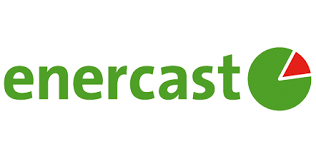 Enercast delivers accurate power forecasts for wind power and solar plants, thus enabling the integration of renewable energy into power grids and energy markets worldwide.
Enercast delivers accurate power forecasts for wind power and solar plants, thus enabling the integration of renewable energy into power grids and energy markets worldwide.
 Greencom Networks’ energy information brokerage platform enables utilities, ESCOs, and OEMs to turn distributed energy assets into revenue streams and into benefits for their customers.
Greencom Networks’ energy information brokerage platform enables utilities, ESCOs, and OEMs to turn distributed energy assets into revenue streams and into benefits for their customers.
 MClimate is an IoT company which changes the way people use the appliances they already have. Their products connect to customers’ heating and cooling systems, allowing them to gain control over 70% of their electricity bill.
MClimate is an IoT company which changes the way people use the appliances they already have. Their products connect to customers’ heating and cooling systems, allowing them to gain control over 70% of their electricity bill.
![]() Naked Energy has designed VirtuPVT – a high energy density solution providing combined solar heat and power in an installation suitable for a rooftop, ground or building façade.
Naked Energy has designed VirtuPVT – a high energy density solution providing combined solar heat and power in an installation suitable for a rooftop, ground or building façade.
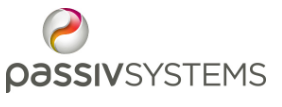 Passiv Systems have developed a range of home energy services aimed at making energy usage more efficient and affordable for millions of households. Their products include the UK’s first smart thermostat, a residential Solar PV asset management service, and the world’s first predictive load management service for optimising CHP equipment on residential district heating networks.
Passiv Systems have developed a range of home energy services aimed at making energy usage more efficient and affordable for millions of households. Their products include the UK’s first smart thermostat, a residential Solar PV asset management service, and the world’s first predictive load management service for optimising CHP equipment on residential district heating networks.
 Poligy’s Bipolymer modules can produce electricity, hot water and heat, while also storing excess energy. Poligy claims that its technology can convert solar and industrial waste heat into electricity at a cheaper cost than any previous technology.
Poligy’s Bipolymer modules can produce electricity, hot water and heat, while also storing excess energy. Poligy claims that its technology can convert solar and industrial waste heat into electricity at a cheaper cost than any previous technology.
Want to get the latest updates on the event as it happens? Follow us for more information and updates.


